📅 08 Jun 2025
🏷️
anki
blogging
My adventure as a content creator for a Facebook group dedicated to Anki
This entry has been in the work for several months! It tells the story behind my time at Anki x ECNi, a Facebook group gathering an ever-growing community of French medical students using the flashcard software Anki. It took a big part in my life as it was my productive escape from medical school.
What is Anki?
Anki is an open-source flashcard software. Here is how it describes itself on its official website.
Anki is a program which makes remembering things easy. Because it’s a lot more efficient than traditional study methods, you can either greatly decrease your time spent studying, or greatly increase the amount you learn.
Anyone who needs to remember things in their daily life can benefit from Anki. Since it is content-agnostic and supports images, audio, videos and scientific markup (via LaTeX), the possibilities are endless. For example:
- Learning a language
- Studying for medical and law exams
- Memorizing people’s names and faces
- Brushing up on geography
- Mastering long poems
- Even practicing guitar chords!
It is quite popular on the other side of the Atlantic ocean, especially in medical schools. Indeed, medical education is the perfect field for Anki to be an A-player. To get your medical degree, you need to understand, learn, and memorize an insane amount of informations. Anki can be extremely useful for the last two steps. Hence there is a very active community around Anki in medical schools:
- decks of flashcards are shared or sold among students;
- there is a Reddit channel dedicated to the use of Anki for medical schools;
- the team behind the AnKing can be seen as a real “Anki influencer”.
Despite being so popular in the US, Anki was relatively unknown, or at least quite confidential, in France a couple years ago when I started the bulk of medical school. Nonetheless, I was lucky enough to hear about it from a classmate. It took a while for me to be convinced, but quite soon it became a cornerstone of my workflow and has remained so ever since.
What was Anki x ECNi and how did I get involve?
In 2021, I stumbled upon a french Facebook group called Anki x ECNi.1
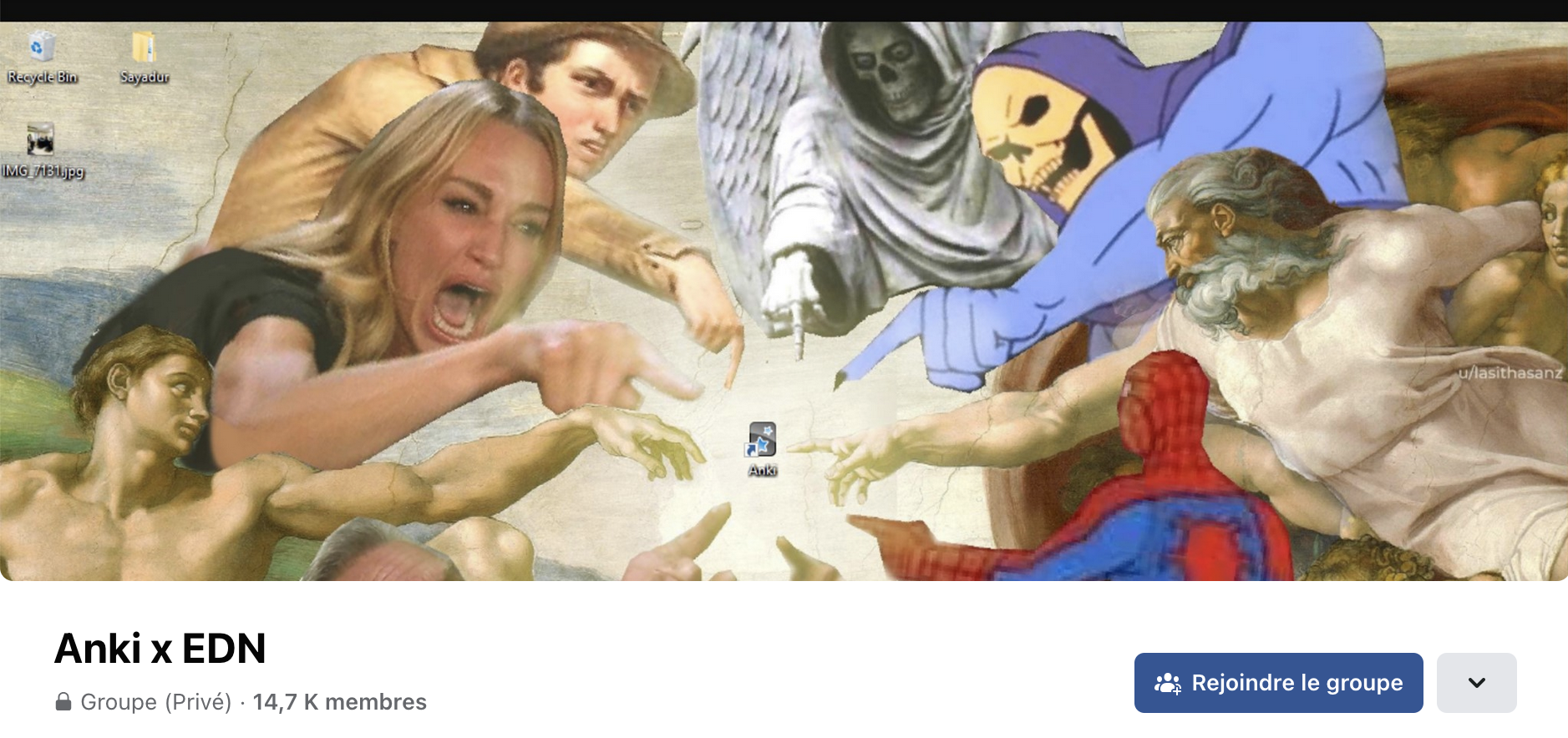
At this point, I have been an avid user of Anki for about a year and a half. Going from one problem to another, I already read most the manual and had a good grasp of the main concepts to create efficient flashcards. This group was the perfect venue to share all what I’ve learnt. So I spend most of the academic year answering questions on this group. It was quiet fun and made all the gathered knowledge about Anki feel less useless.
Some questions were super redundant and were asked at least once or twice a month. Then came the idea of writing a book or documents about how to use Anki in medical school so that I could point towards them when the questions would inevitably pop up again. I had a couple drafts on my computer but the plan was to focus on that after my ECN.
The plan got disrupted when the creator of the group contacted me in the summer of 2022. He noticed I was (over-)active on the Facebook group and he proposed me to join the admin team. We chatted a bit about how I could get involved. I had a couple of ideas, inspired by previous projects of mine. He sounded interested, and a few clicks later, here I was, admin of Anki x ECNi!
What have we done?
On top of me, another admin was appointed at the same time. He focused more on the day-to-day content moderation of the group, while I focused on creating documents. The main idea was for the group to have two different, yet related, purposes:
- be a forum where anyone could ask question and anyone could answer them, to foster peer-support;
- provide in-depth and critical discussion about the best way to use Anki.
Regarding the second purpose, I developed several formats.
Anki-tuto
Anki-tuto, short for Anki-tutorial, has been a series of almost 20 documents, each covering a core concept of Anki. Some of them were technical tutorial (how to use the search bar?), while other were focused on higher-level concepts (what is the best way to organize your collection of flashcards?).
This project was roughly successful. The likes and views were among the highest of the groups, but still remains low: around 2000 people saw each posts and about 100 clicked on the document’s link. Nonetheless, they fulfilled their purpose as we could cite them when answering questions on the group.
I tried to get the community involved and ask folk to propose new subject to cover. That didn’t work well…


Testimony
A few years ago, I was involved in a peer-support charity for first-year student in medical school.2 We provided pedagogical support (mock exams for instance). The charity had a website with a forum on which people could ask questions (about their lessons, methodology, etc.). One of the most successful topic was “Older students tell the story behind their first year”. Following a more or less strict pattern of questions, every student who succeeded to get in the second year of medical school could tell how they did it.
I ported the concept on Anki x ECNi. We built a template with questions covering the main points of a workflow (how you create your flashcards, what parameters do you use, how do you organize your flashcards, etc.). We put it in a Google form that we shared on the Facebook group and among our friends.
The results were mixed. On the one hand, we manage to publish only 12 testimonies in a couple years. On the other hand, they were the most successful post on the group with almost 5000 views. The main reason behind this (relative) success is that the ranking of the people who testified was highlighted in the document and the Facebook post. And students are extremely focused on rankings (is this justified? I could write a whole book about the question…).
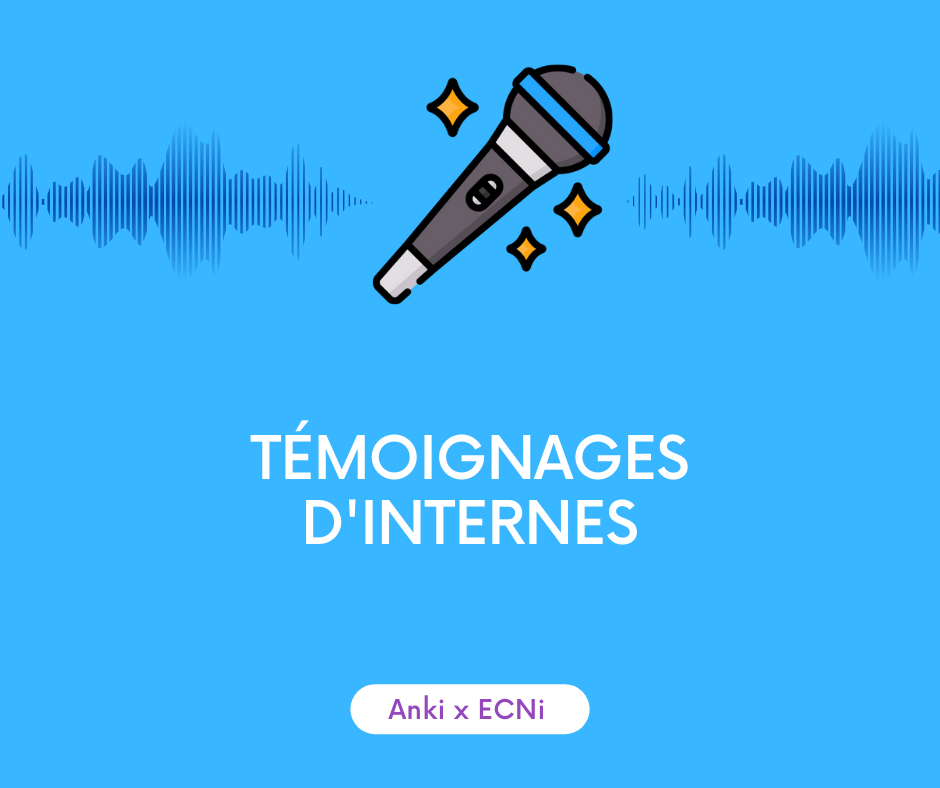
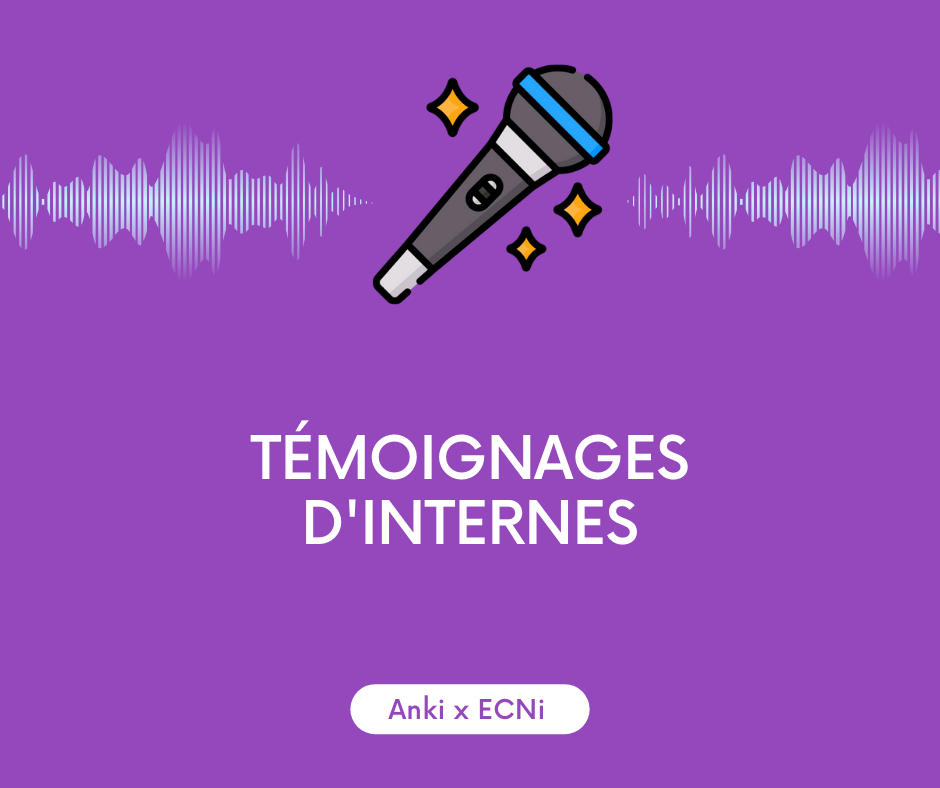


Your advice
I was quite bumped by the lack of interactions below the posts of Anki-tuto. I thought they would trigger discussions between members. I even tried to be a little provocative in some documents (by downplaying as much as possible decks as a way to organize your flashcards for instance). But that didn’t work…
So I came up with a new idea: I would ask a question about a somewhat controversial aspect of Anki, give everyone a week or two to answer and give their advice, and then publish a synthesis document of everyone’s advice on the matter at hand.
In total, 3 questions were asked:
- how to share your study time between Anki and MCQ session?
- what is your favorite addon?
- how do you choose what part of the lesson is going to be turned into flashcards?
Again, it was not very successful… Around 40 people answered each questions. Answers were very interesting though!
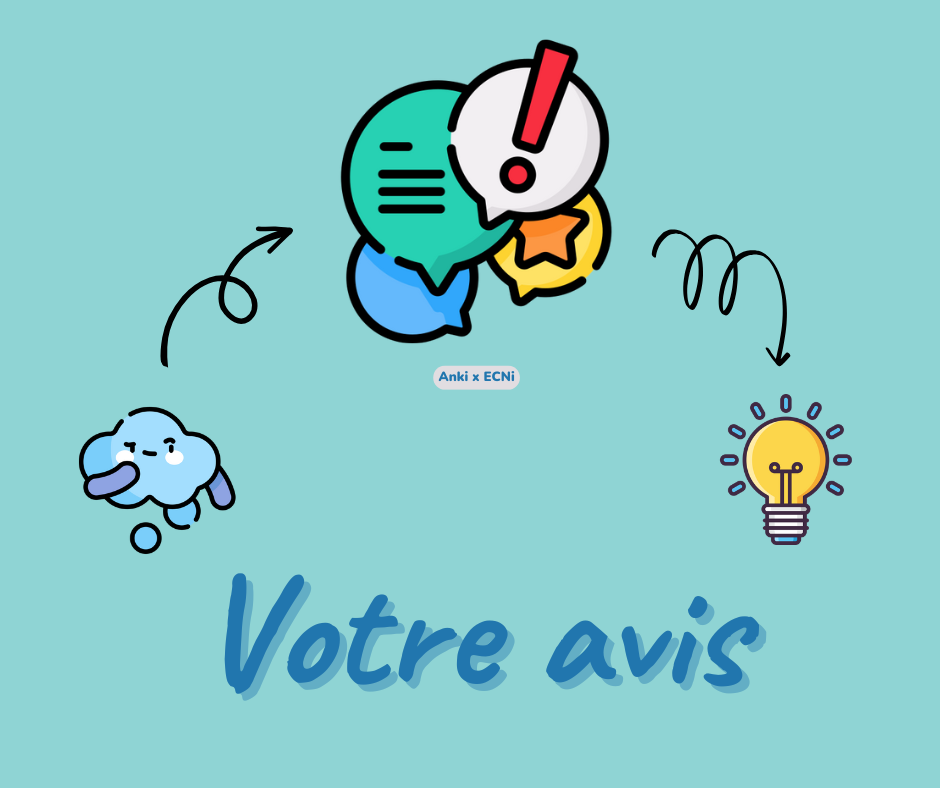


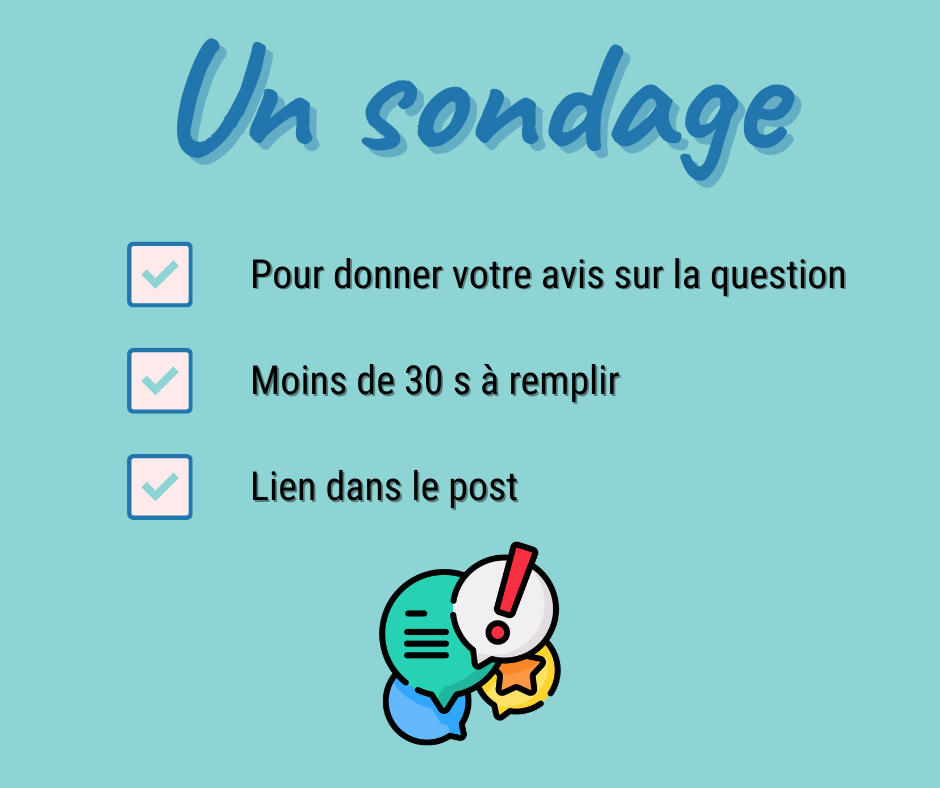
Grow the group
Growing the audience of the group was an underlying goal we all had in mind without really acknowledging it. Word of mouth did part of the job but the growth was still slow. Hence we try a couple things with, spoilers ahead, little success.
The biggest Facebook group for medical students in France is “Entraide ECNi EDN ECOS”. In the beginning, most of its posts were questions about the curriculum: students who failed to grasp some aspects of lectures could ask for help from their peers here. But everything changed when anonymous posts were allowed. From then, the overwhelming majority of posts were cries for help or people asking fellow group members to signal themselves in the comments section so that they could ask them questions in PM. The group became unrecognizable for old-timers. Still it was the main hub for medical students. Posting an ad about the group there seemed an efficient way to attract new members. However the group had a restrictive policy about ads (because most of them were for paid-subscription service). At the end of the day, we made a single post there and it worked quite well.
The biggest strength of Anki x ECNi was the active community exchanging there everyday. So I had the idea to include them in th growth of the group. I designed a post that members could post on the Facebook group of their own medical school. This was a huge failure: out of 38 medical schools, only 2 of them saw the post.




Petit post pour vous parler d’Anki et du groupe Facebook Anki x ECNi.
https://www.facebook.com/groups/anki.ecni
Anki c’est un logiciel où vous pouvez créer (ou récupérer) des flashcards pour réviser vos cours. Là où c’est top, c’est que derrière il y a un algorithme qui vous présente chaque jour uniquement les cartes que vous avez besoin de revoir ! Si vous voulez en savoir plus, vous pouvez rejoindre le groupe Facebook Anki x ECNi où vous trouverez, entre beaucoup d’autres choses, des posts expliquant les bases du logiciel. Et tout est gratuit !
Nonetheless, the organic growth of the group did its job: in two years we went from 6000 members to almost 13 000.
And a couple other things…
In the past, I worked for several students associations and the work was such that we needed a thorough digital workflow. Hence we used a lot of different tools ranging from Slack to Google Script. We were also keen on standardizing our practices. I was (and still am) a bit nostalgic of that era. Hence I tried to reproduce some aspects of that for Anki x ECNi.
Of course this was a major overkill! Because of the way we split the roles, I was the main person using something else than Facebook. Nonetheless, I took pride in having a neat Google Drive space, (somehow) coherent typesetting across all our documents. We also wrote a document to outline what the future of the group might be after running several brainstorming sessions between us.
As you may have guessed, this was mainly procrastination to turn me away from medical-school-induced boredom.
How did it slow down?
Progressively in my last year of medical school, I lost interest in the group.
Regarding testimony, despite calling for submissions, the flow of responses was decreasing. Regarding Anki-tuto, most of the interesting and basic concepts had been covered. The next logical step would have been opinion pieces. However I didn’t feel like this would fit in the editorial line we chose. Regarding Your advice, I was discouraged by the low rate of answers from the preceding posts. All in all, most projects did not motivate me as much as before. Motivation was what was needed to revive them. So most of them simply died out.
At the same time, I created this website. It took some of my time and I enjoyed more the hours I spent tweaking the underlying code than the time spent thinking about new projects for Anki x ECNi.
As medical school was over, it seemed to be the right time to leave the admin team of the group.
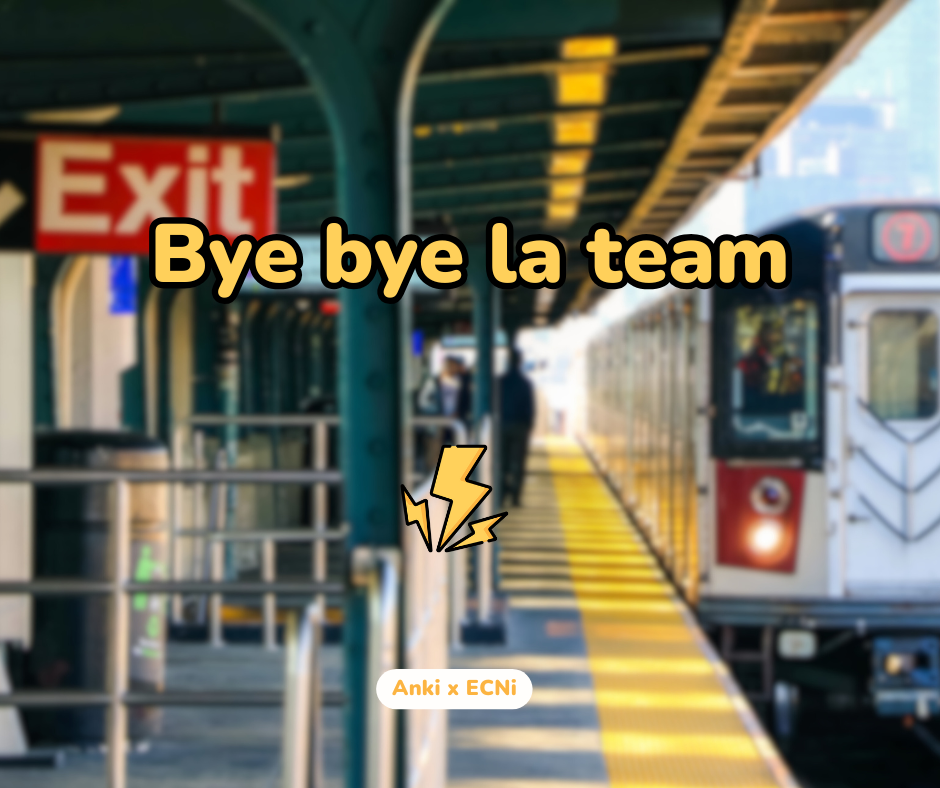
What lies ahead?
The group is still alive and well. I’m curious to see what it will look like in a couple years!
I’m not sure they will read this entry, but I want to share my deepest thanks to the admin team I had the chance to work with for these wonderful couple years!
-
ECNi stands for Épreuves Classantes Nationales informatisé which roughly translates to digital national ranking exam. The content of this exam is equivalent to the USMLE Step 2 CK. Depending on their ranking at this competitive exam, students choose their medical specialty and the city in which their residency will take place. ↩
-
In France, every one can get into medical school. The trick is that there is a limited number of positions opened for the second year. So at the end of each semester, there is a competitive exam and only the higher-ranked students can remain in medical school. ↩